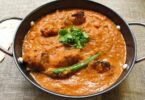Type 2 Diabetes can simply be defined as a condition that affects the way your body metabolizes sugar. Another word for sugar is glucose. Food is one of the main sources affecting blood sugar. Foods that easily increase blood sugar are foods that contain sugar (candy, sweets, desserts and beverages including fruit juice and soda) and carbohydrates (bread, rice, cold cereal, fruit, pasta, potato, fruit, and yogurt). 100% of carbohydrates gets converted into sugar. The more food you eat that contains higher amounts of sugar, starch or carbohydrate, the higher your blood sugar levels will be.
Foods that contain more carbohydrates, 15 grams of carbohydrates /serving:
fruit, yogurt, milk, bread, potato, rice, cereal, bagels, starchy vegetables like potato and corn
Foods that contain less carbohydrates, 0-5 grams/serving
protein: eggs, fish, turkey and other fowl, venison, beef, pork etc…
non-starchy vegetables: spinach and other lettuces, kale, bok choy, callalou, broccoli, tomato, cucumber, mushroom, celery…
Fat: Avocado, nuts/nut butters/seeds (almonds, walnuts, peanuts, pistachios, sunflower & pumpkin seeds), oils (olive oil, high-heat safflower oil), coconut, butter
Dairy: cottage cheese, mozzarella, cheddar…, Greek yogurt, unsweetened almond milk
Misc.: broth, bouillon or consumme
The Mayo clinic has a more extensive list of specific foods in the diabetes exchanges, http://www.mayoclinic.com/health/diabetes-diet/DA00077
Some foods are considered low glycemic index or low glycemic load foods. These foods contain higher amounts of carbohydrates and do not impact blood sugar as much as other carbohydrate foods. However individuals have different responses so you should check your blood sugar before and after these foods have been consumed to measure the impact on you:
Starchy Vegetables: carrots, yams,
Fruit: apple, peach, plum, pear
Legumes: kidney beans, lentils, chick peas, peas
Bread/cereal: oatmeal, Alvarado Street Bakery (flaxseed) bread or Ezekiel bread, WASA fiber rye crackers
Here are a couple of sites that can give you a more extensive lists of the low glycemic index foods: http://www.glycemicindex.com/ and http://www.mendosa.com/gilists.htm







If you can’t eat eggs or meat, how does tofu fit in on the glycemic index?
Tofu is ok to eat but I get concerned with eating too much of one food. It is important to eat a variety of foods and that includes a variety of food from different sources of protein. Otherwise you limit the nutrients you get from eating a variety of different proteins (venison, buffalo, lamb, turkey, fish)Are there any other souces of protein you are able to eat, such as almond butter, cottage cheese, whey protein powder, fish, poultry…?